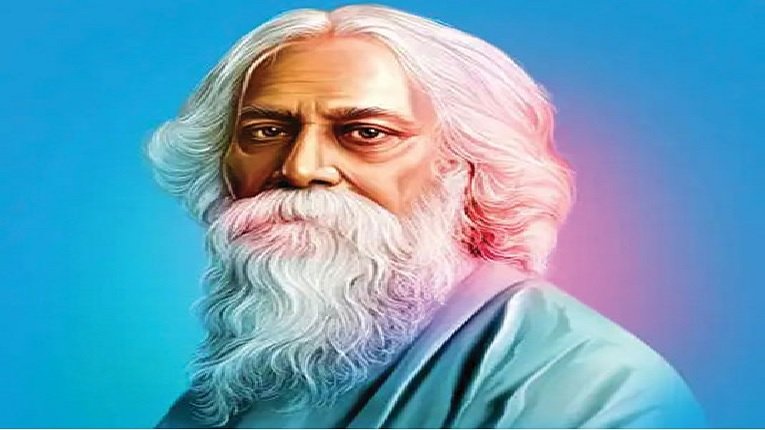
Today marks the 164th birth anniversary of Rabindranath Tagore, the towering figure whose literary genius redefined Bangla literature, music, and the cultural identity of the Indian subcontinent through his embrace of contextual modernism.
Tagore was born on 25 Baishakh, 1268 in the Bengali calendar (May 7, 1861) at the Jorasanko mansion in Kolkata. A poet, philosopher, playwright, and painter, Tagore remains one of the most influential cultural figures of South Asia.
In 1913, he became the first Asian to be awarded the Nobel Prize in Literature for Gitanjali, a collection of deeply spiritual and lyrical poems that brought him international acclaim.
Tagore’s literary corpus is vast, encompassing short stories like Kabuliwala and Postmaster, novels such as Gora, Chokher Bali, and Shesher Kobita, and plays including Raktakarabi and Dak Ghar.
As a composer, Tagore created over 2,000 songs—collectively known as Rabindra Sangeet—which continue to shape Bengali cultural and musical identity.
Tagore’s contributions extend beyond literature, he composed the national anthems of both India and Bangladesh and founded Visva-Bharati University.
 Weekly Bangla Mirror | Bangla Mirror, Bangladeshi news in UK, bangla mirror news
Weekly Bangla Mirror | Bangla Mirror, Bangladeshi news in UK, bangla mirror news







